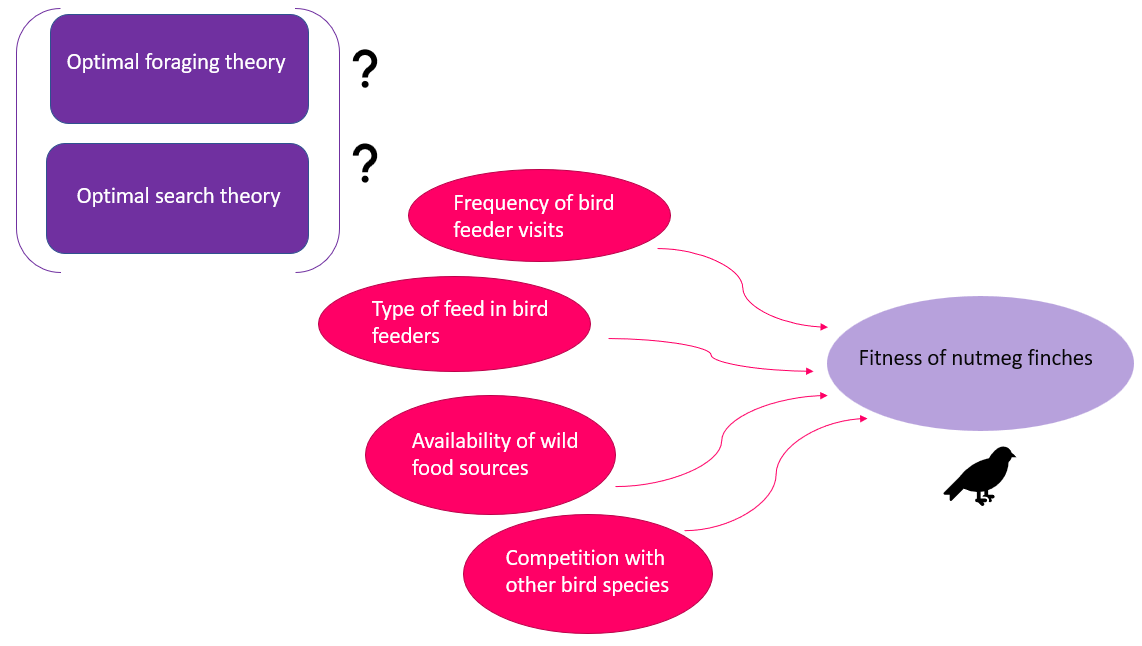Conceptual framework vs. Theoretical framework – and constructing each
The terms ‘conceptual framework’ and ‘theoretical framework’ are commonly used in referring to the overall structure that shapes a research project. However, there are subtle differences between the two. This article sets out to clarify these differences along with providing pointers on how to go about constructing each framework.
Let’s begin by seeing the difference between a concept and a theory.
Concept vs. theory
- A concept is an idea that has been formally developed and organised.
- A theory is a set of concepts, models, principles, definitions etc. that make sense of a phenomenon by determining relationships among variables. Theories are established and validated by experiments and evidence.
Purpose of conceptual framework
A conceptual framework is like a roadmap for your study, helping you visualise your research project and put it into action. It defines the relevant variables for your study and maps out how they might relate to each other.
Conceptual frameworks have different uses in different types of studies.
- In quantitative studies, a conceptual framework might be used to determine survey questions or data points, or to generate a hypothesis for explanations and predictions.
- In qualitative studies, a conceptual framework might be used to provide a working hypothesis or a set of research questions, or to identify or explore categories in descriptive research.
Purpose of theoretical framework
A theoretical framework introduces and describes the theory/theories underpinning the research problem. Thus, theoretical frameworks support research by describing and/or drawing from relevant theoretical aspects obtained in previous work.
Note:
- In master’s research, there might be one or two theoretical frameworks.
- For a PhD, which warrants original research that provides a substantial contribution of new knowledge, three or more theoretical frameworks might be involved.
Conceptual vs. theoretical framework
Here’s a summary of the key differences between the two frameworks.
| Conceptual Framework | Theoretical Framework |
| It is more about the approach that a researcher takes in answering a research question. | It is developed from existing theory/theories. |
| It is derived from concepts. | It is derived from theory. |
| A conceptual framework is composed of several concepts. Further, a conceptual framework may include a theoretical framework. | By itself, one theory alone can serve as a theoretical framework. |
| Conceptual frameworks identify factors influencing a particular field, e.g., exploration of ‘masquerade’ mimicry in animals based on phenomena such as protective mimicry, crypsis and aposematism. | A theoretical framework arises from outcomes beyond a single study, based on one or more theories, e.g. Darwin’s theory of evolution by natural selection. |
Constructing a conceptual framework
A conceptual framework is created before you start your experiments. It may be in a written or diagrammatic format, representing expected relationships between variables. You can even combine or modify existing frameworks.
Constructing a theoretical framework
- Read and review the literature to identify long-standing themes and the main concern(s) for the inquiry.
- List all constructs and variables and consider how the variables are related to a theory.
Conceptual and theoretical frameworks: Example
Suppose you want to investigate if nutmeg finches visiting bird feeders in cities have better fitness than those in the wild. You will develop a conceptual framework outlining the variables to study and how you expect them to relate to each other (see Figure 1).
Your conceptual framework may include a theoretical framework as well: say, you want to relate the observed phenomena with certain ecological theories. In the example in Figure 1, the ‘optimal search theory’ and ‘optimal foraging theory’ provide a lens through which the variables should be explored.

Figure 1. Example of a conceptual framework for a fictional study about the fitness of nutmeg finches visiting bird feeders versus those foraging in the wild.
End note
It is important to develop these frameworks in the early stages of your study to guide your thinking and enable you to visualise linkages between various concepts and theories. A framework can make research findings more meaningful, providing a solid foundation for the study.
Maximise your publication success with Charlesworth Author Services.
Charlesworth Author Services, a trusted brand supporting the world’s leading academic publishers, institutions and authors since 1928.
To know more about our services, visit: Our Services